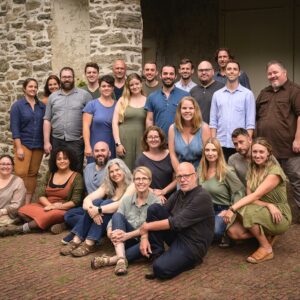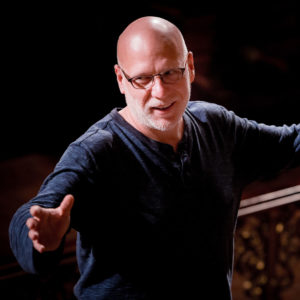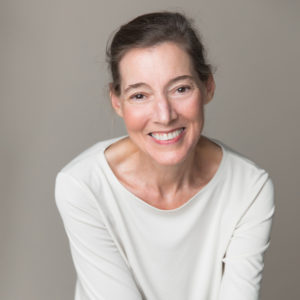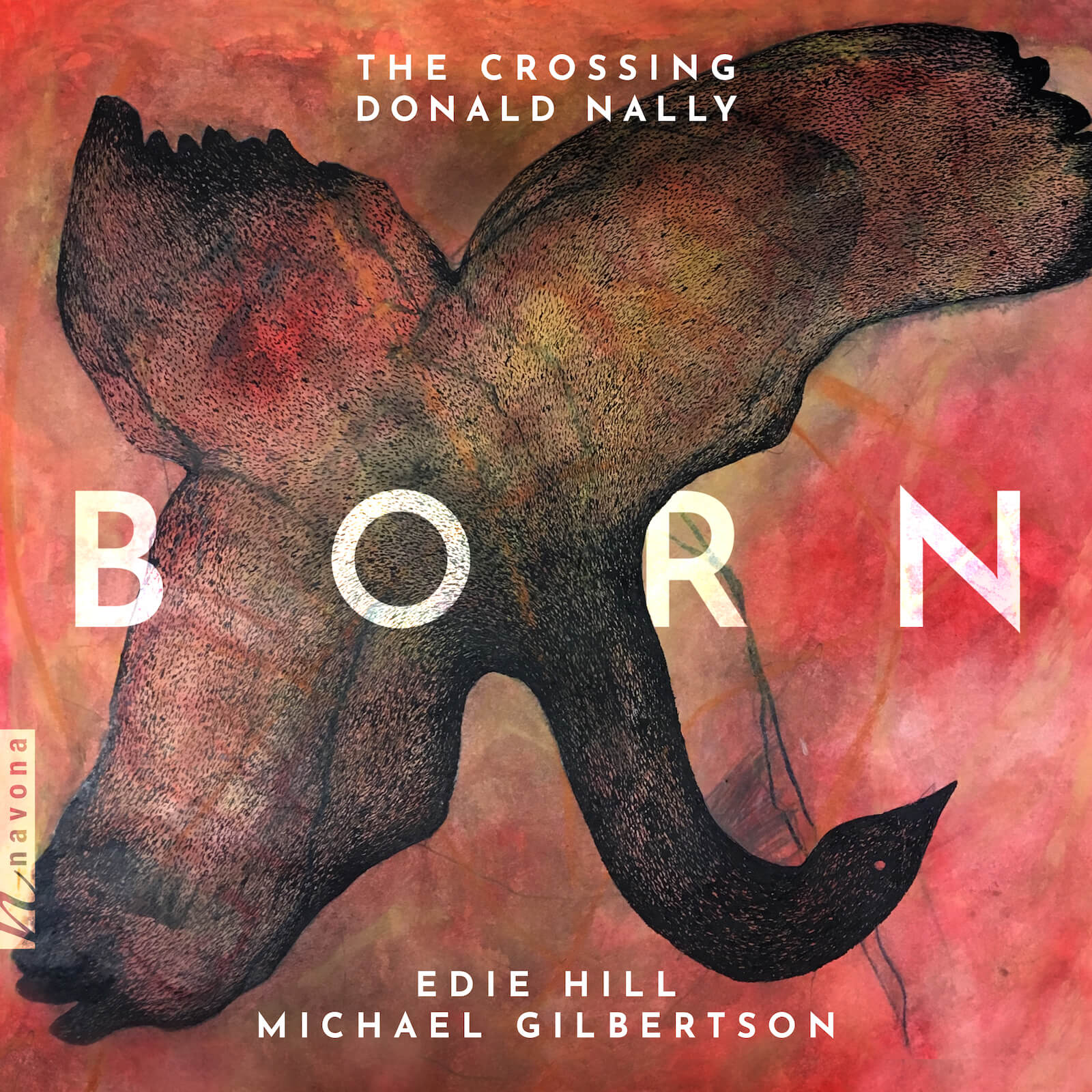Born
The Crossing | Donald Nally conductor
Edie Hill composer
Michael Gilbertson composer
Contemporary music needn’t sacrifice order and aesthetic appeal, even when it deals with complex issues. A glowing example of this is BORN: THE MUSIC OF EDIE HILL AND MICHAEL GILBERTSON, with conductor Donald Nally leading GRAMMY-winning professional chamber choir The Crossing on a breathtakingly beautiful expedition into themes of extinctions, relationships and their complexities, loss, and love.
Throughout this splendid amalgamation of Hill’s and Gilbertson’s ethereal, energetic, raw, and impactful compositions, the nuance of Nally’s conducting, and The Crossing’s superb expressiveness are ever-present. Singing that is transcendent and authentic.
Listen
Stream/Buy
Choose your platform
Track Listing & Credits
| # | Title | Composer | Performer | |
|---|---|---|---|---|
| 01 | Born | Michael Gilbertson | The Crossing | Donald Nally, conductor | 9:45 |
| 02 | Spectral Spirits: I. Prelude: These Birds | Edie Hill | The Crossing | Donald Nally, conductor; Maren Montalbano, soloist | 2:22 |
| 03 | Spectral Spirits: II. Eyewitness: Henry David Thoreau and the Passenger Pigeon | Edie Hill | The Crossing | Donald Nally, conductor; James Reese, soloist | 1:40 |
| 04 | Spectral Spirits: III. The Naming: Passenger Pigeon | Edie Hill | The Crossing | Donald Nally, conductor; Maren Montalbano, soloist | 0:15 |
| 05 | Spectral Spirits: IV. Passenger Pigeon | Edie Hill | The Crossing | Donald Nally, conductor | 6:41 |
| 06 | Spectral Spirits: V. Eyewitness: Gert Goebel and the Paroquets | Edie Hill | The Crossing | Donald Nally, conductor; Dominic German, soloist | 1:43 |
| 07 | Spectral Spirits: VI. The Naming: Carolina Parakeet | Edie Hill | The Crossing | Donald Nally, conductor; Maren Montalbano, soloist | 0:17 |
| 08 | Spectral Spirits: VII. Carolina Parakeet | Edie Hill | The Crossing | Donald Nally, conductor | 3:27 |
| 09 | Spectral Spirits: VIII. Eyewitness: Lucinen M. Turner and the Migration of the Curlews | Edie Hill | The Crossing | Donald Nally, conductor; Rebecca Myers, soloist | 3:50 |
| 10 | Spectral Spirits: IX. The Naming: Eskimo Curlew | Edie Hill | The Crossing | Donald Nally, conductor; Maren Montalbano, soloist | 0:20 |
| 11 | Spectral Spirits: X. Eskimo Curlew | Edie Hill | The Crossing | Donald Nally, conductor | 3:55 |
| 12 | Spectral Spirits: XI. Eyewitness: Mr. Wilson and the Ivory-bill | Edie Hill | The Crossing | Donald Nally, conductor; Dominic German, soloist | 2:07 |
| 13 | Spectral Spirits: XII. The Naming: Ivory-Billed Woodpecker | Edie Hill | The Crossing | Donald Nally, conductor; Maren Montalbano, soloist | 0:19 |
| 14 | Spectral Spirits: XIII. Ivory-Billed Woodpecker | Edie Hill | The Crossing | Donald Nally, conductor | 5:11 |
| 15 | Returning: Part 1: What knits us | Michael Gilbertson | The Crossing | Donald Nally, conductor | 9:32 |
| 16 | Returning: Part 2: I thought of staying quiet | Michael Gilbertson | The Crossing | Donald Nally, conductor | 9:23 |
THE CROSSING
Katy Avery • Nathaniel Barnett • Karen Blanchard • Steven Bradshaw • Colin Dill • Micah Dingler • Joanna Gates • Dimitri German • Dominic German • Steven Hyder • Michael Jones • Lauren Kelly • Anika Kildegaard • Heidi Kurtz • Chelsea Lyons • Maren Montalbano • Rebecca Myers • James Reese • Daniel Schwartz • Rebecca Siler • Tiana Sorenson • Daniel Spratlan • Elisa Sutherland • Daniel Taylor
Donald Nally Conductor
Kevin Vondrak Assistant Conductor
John Grecia and Mark Livshits Keyboards
Born: music of Edie Hill and Michael Gilbertson was recorded
August 21-24, 2021 at St. Peter’s Church in the Great Valley,
Malvern PA
Recording Producers Paul Vazquez, Donald Nally, and Kevin Vondrak
Recording Engineer Paul Vazquez
Assistant Recording Engineers Dante Portella and Henry Koch
Editing, Mixing, and Mastering Paul Vazquez
Production Assistants Antonio Ruiz-Nokes and Ben Perri
The recording of Born: music of Edie Hill and Michael Gilbertson is made possible through the generous support of Carol Westfall, longtime friend and benefactor of The Crossing.
Artwork by Christopher St. John (2019) – “Bird with the Sound of a Warmer Climate,” “Songs for Passenger Pigeons.”
Publicity Morahan Arts and Media
THE BOARD OF DIRECTORS OF THE CROSSING
Kelly Ann Bixby
Timothy V. Blair
Phil Cooke, vice president
Shawn Felton
Mary D. Hangley
Lisa Husseini
Cynthia A. Jarvis
Anika Kildegaard
Mary Kinder Loiselle
Michael M. Meloy
Donald Nally
Eric Owens
Pam Prior, treasurer
Andrew Quint
James Reese
Kim Shiley, president
Carol Loeb Shloss, secretary
John Slattery
Elizabeth Van de Water
THE STAFF OF THE CROSSING
Jonathan Bradley, executive director
Stephanie Lantz-Goldstein, development manager
Shannon McMahon, operations manager
Kevin Vondrak, assistant conductor & artistic associate
Paul Vazquez, sound designer
Katie Feeney, grant manager
Elizabeth Dugan, bookkeeper
Ryan Strand, administrative assistant
The Crossing is represented by Alliance Artist Management
COME. HEAR. NOW.
#ComeHearNow
www.crossingchoir.org
Executive Producer Bob Lord
Management Jeff LeRoy, Janet Giovanniello, Tim Finley
A&R Director Brandon MacNeil
VP of Production Jan Košulič
Audio Director Lucas Paquette
VP, Design & Marketing Brett Picknell
Art Director Ryan Harrison
Design Edward A. Fleming
Publicity Patrick Niland, Brett Iannucci, Aidan Curran
Artist Information

The Crossing
The Crossing is a Grammy-winning professional chamber choir conducted by Donald Nally and dedicated to performing new music. It is committed to working with creative teams to make and record new, substantial works for choir that explore and expand ways of writing for choir, singing in choir, and listening to music for choir. Many of its nearly 150 commissioned premieres address social, environmental, and political issues.

Donald Nally
Donald Nally collaborates with creative artists, leading orchestras, and art museums to make new works for choir that address social and environmental issues. He has commissioned over 180 works and, with The Crossing, has 29 recordings, with two Grammy Awards and eight nominations. Nally has served as chorus master at the Lyric Opera of Chicago, Welsh National Opera, Opera Philadelphia, and the Spoleto Festival in Italy.

Edie Hill
For Edie Hill, writing music is an opportunity to research, learn, muse, reach down deep, and allow inspiration to come from the stuff of life. Her compositions are fueled by her experiences, passions, and curiosities.

Michael Gilbertson
The works of Michael Gilbertson have been described as “elegant” and “particularly beautiful” by The New York Times, “vivid, tightly woven” and “delectably subtle” by the Baltimore Sun, “genuinely moving” by the Washington Post, and “a compelling fusion of new and ancient” by the Philadelphia Inquirer. Gilbertson is the BMI Composer in Residence with the San Francisco Chamber Orchestra and is a professor at the San Francisco Conservatory of Music. He was a finalist for the 2018 Pulitzer Prize in Music for his Quartet.

